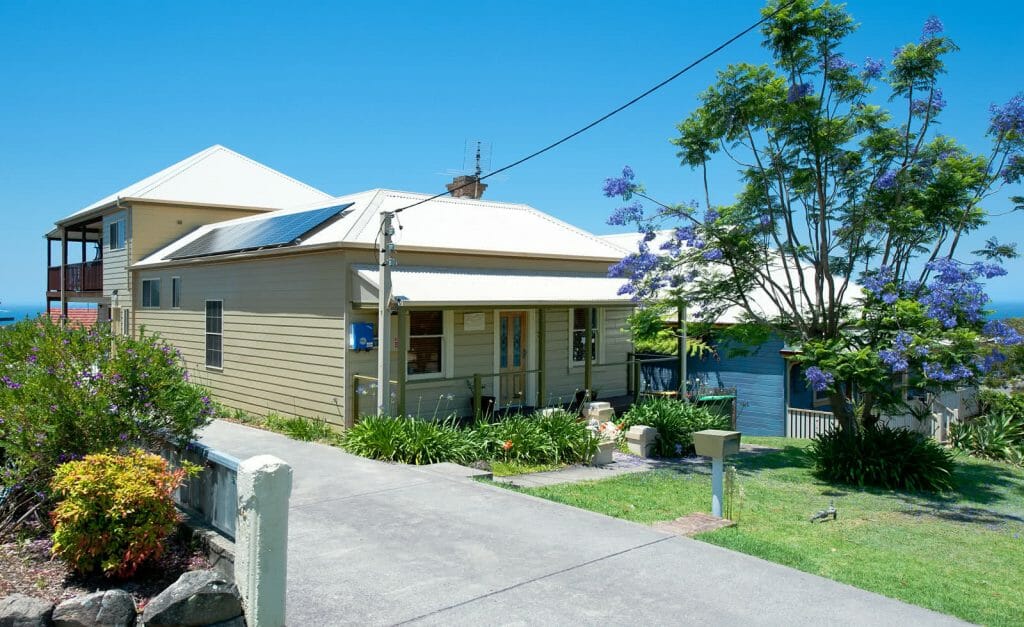If you’ve heard about rentvesting, you might be one of the many Australians considering buying your first investment property while still renting a place to live.As an aspiring rentvestor, though, you’re new to the property market. For this reason, beyond basic factors like deciding how much to spend and where to invest, there are likely aspects of the purchasing process you haven’t considered.For instance: the fact that it’s not just a deposit you’ll need when buying your first investment property. There’s actually a whole list of extra costs involved, and while some may seem insignificant, they can really add up.Luckily, there’s also another side to the story. First home buyers in NSW are entitled to a range of concessions and benefits that can help make things a little more affordable. (There are caveats involved when you’re a first-time investor rather than owner-occupier, though – we’ll delve into those below.)
Before you consider buying your first investment property, make sure you familiarise yourself with every aspect of the buying process – both positive and negative.
Contents
THE POSITIVE: FIRST HOME BUYER CONCESSIONS
It can be difficult to get a foot in the door of today’s property industry, but the NSW Government has a few measures in place to improve housing affordability.
In July 2017, the First Home Buyers Assistance Scheme was updated with extra concessions. These include:
- Removal of stamp duty on homes up to $650,000 and vacant land up to $350,000
- Stamp duty relief for homes up to $800,000
- Removal of 9% insurance duty on lender’s mortgage insurance.
There is also a First Home Owner Grant of $10,000 for builders of new homes up to $750,000, as well as purchasers of new homes up to $600,000.
However, those purchasing an investment as their first property must keep an important caveat in mind: to be eligible for any of the above benefits, you must live in the property yourself for a continuous period of at least six months before renting it out.
If you’re happy to commit to living in your investment property for a short time, you’ll be able to save yourself a good amount of money on its purchase.
Get A Rental Property Appraisal
Maximise the potential of your property investment
THE NEGATIVE: HIDDEN OR UNEXPECTED COSTS
Unfortunately, as well as the above benefits you may not have considered, there are also additional costs you may not have been aware of.
Be sure to factor the following into your budget when purchasing your first investment property.
INSPECTIONS
Pre-purchase inspections are a necessary expense for property buyers. To ensure everything is in order before purchasing a property, you should organise a general building inspection (or strata report for strata schemes) and a pest inspection, at the very least.
CONVEYANCER FEES
A licensed conveyancer should be enlisted to assist with the settlement and title transfer of the property. This will usually involve a flat service fee.
HOME LOAN APPLICATION/ESTABLISHMENT FEE
Application or establishment fees are charged by lenders as an upfront cost covering the processing of your loan.
INSURANCE
There are multiple types of insurance available to property owners. Some are optional but worth considering.
Key types of homeowner insurance include:
- Building insurance (or strata insurance if you’re part of a strata scheme)
- Landlord insurance – protects your investment property in the case of loss or damage, and protects your income should tenants fail to pay rent
- Lender’s mortgage insurance – applicable if you borrow more than 80% of the property’s value. This insures your lender if you are unable to make your loan repayments.
COUNCIL RATES
Property owners are required to pay quarterly fees to their local council, beginning from the date of settlement. These contribute towards the council’s provision of municipal services and infrastructure. Check your council’s website for information about specific rates.
STRATA LEVIES
If you buy a unit, villa or townhouse, you’ll be part of a strata scheme. This involves strata levies – quarterly fees paid by all owners of properties in the complex, which go towards the maintenance of the strata scheme.
LAND TAX
As the owner of an investment property, you’ll be required to pay an annual land tax if the property is valued above a certain threshold.
Be sure to check out our land tax summary to find out how much tax you’ll have to budget for.
Key Takeaways
- Buying your first investment property involves more than just the deposit; consider all associated costs.
- NSW offers first home buyer concessions, including stamp duty relief and grants for new homes, with eligibility conditions.
- Unexpected costs include inspections, conveyancer fees, application/establishment fees, multiple types of insurance, council rates, strata levies, land tax, and potential renovation expenses.
- Thoroughly understanding all expenses and benefits is crucial for making an informed investment decision.
RENOVATIONS
If you’re buying a ‘fixer-upper’ investment property, be sure to factor the potential costs of renovations into your budget.
Always consider renovations in terms of how they can improve your return on investment. And always budget for more than you estimate the renovation costs to be, as these can easily increase (and often do).
There’s a lot to consider when it comes to buying your first investment property, especially if it’s your first foray into the property market. For expert information and advice, contact our Investment Services team.


